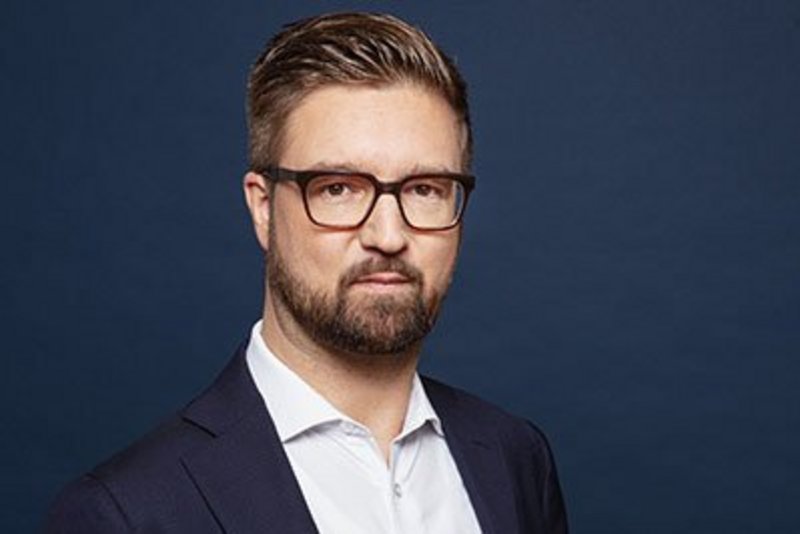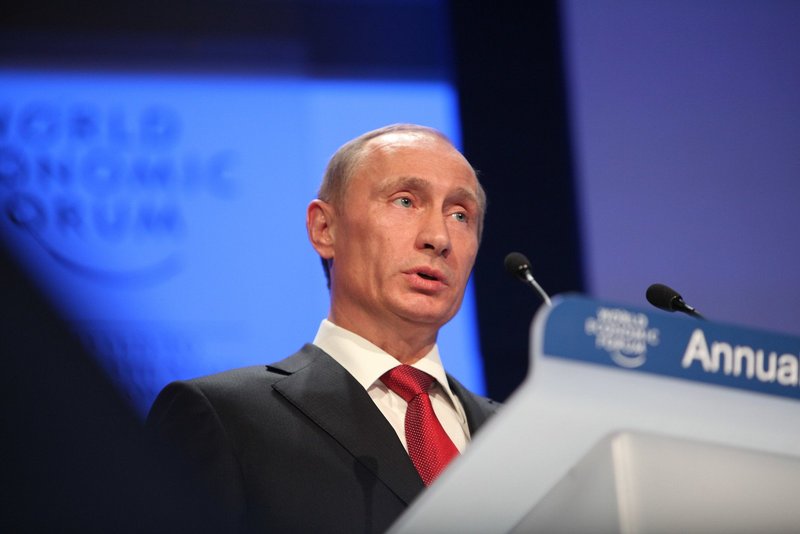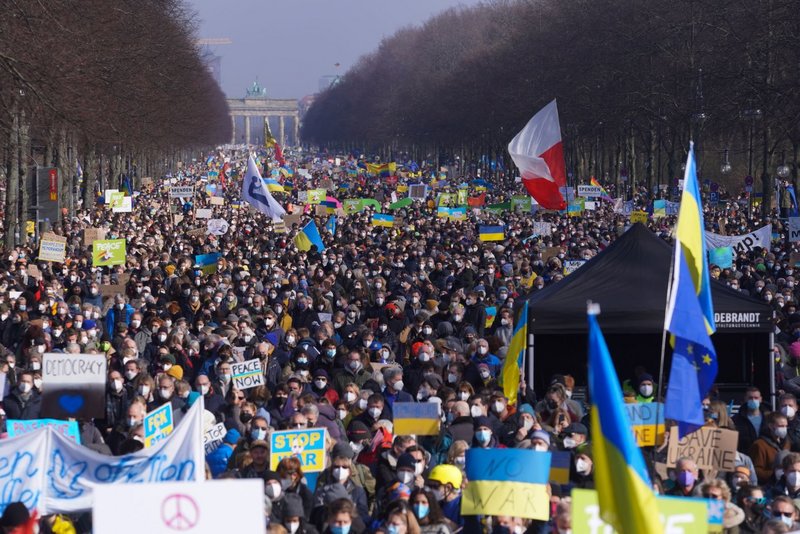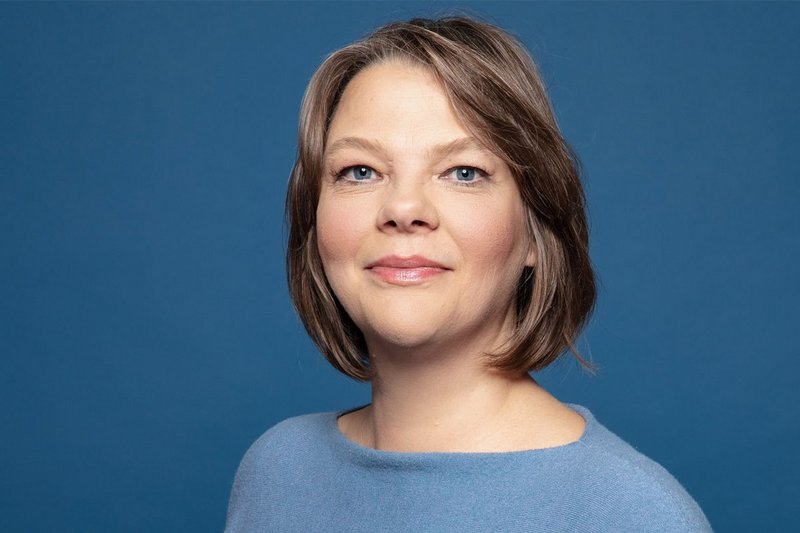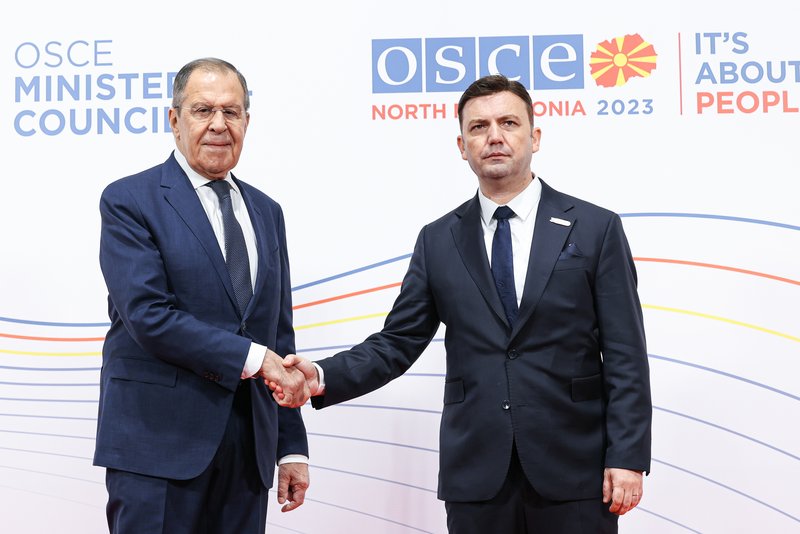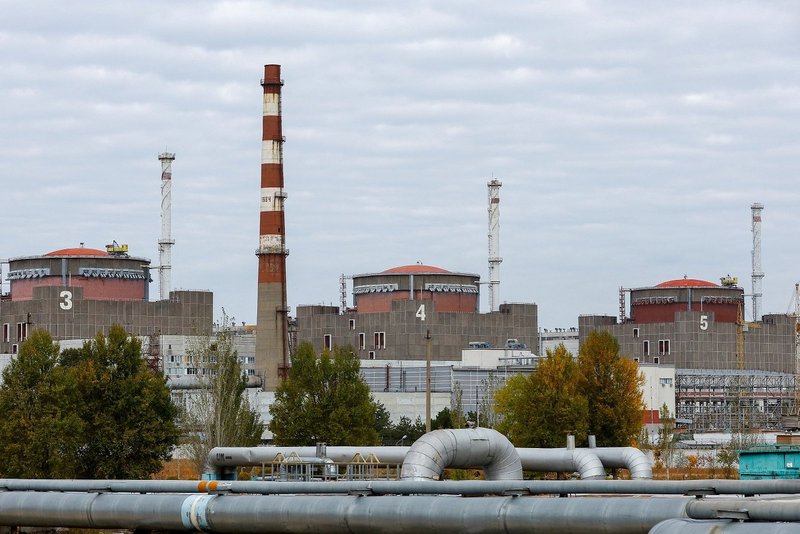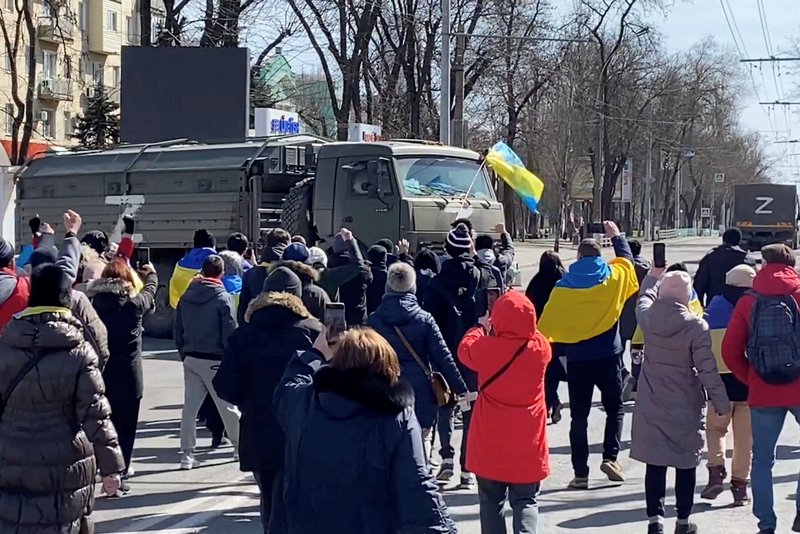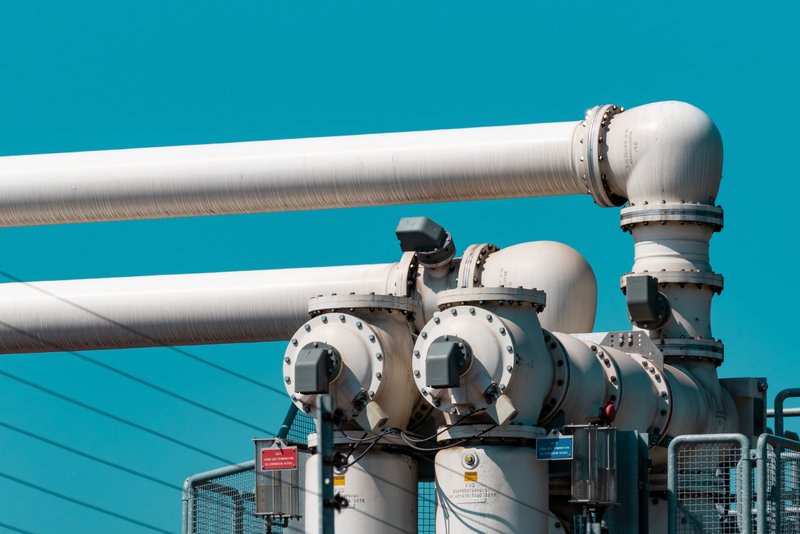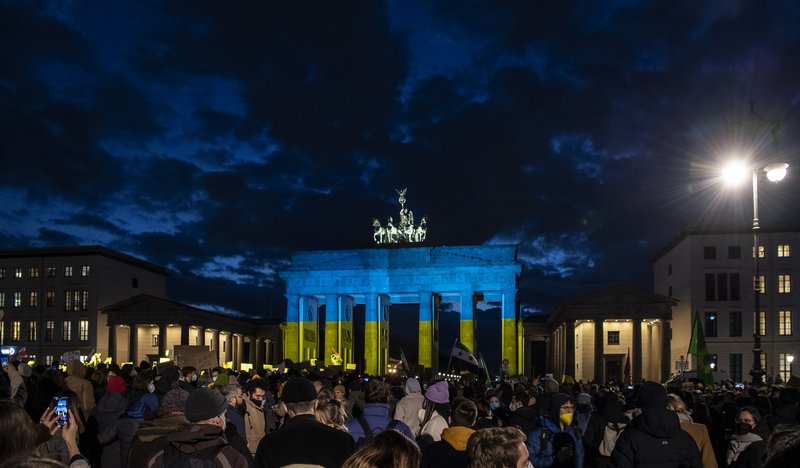War in Ukraine
“Ask the IFSH!”
There is war in Ukraine. Many people, also here in Hamburg, are asking themselves how it could come to the war, what the concrete background is and what consequences the war will have – for Ukraine, for Europe, for all of us.
With “Ask the IFSH!”, the IFSH offers current peace and security policy discussion formats on the Ukraine war, especially for Hamburg residents but also for other citizens. Our scientists discuss the war in Ukraine with you in an informative and descriptive manner – in person or virtual (e.g. via Zoom). Whether school classes, associations, citizens' initiatives, etc., we answer your questions, explain complex issues and discuss peace policy perspectives on the war together with you.
Please find further information here or contact us directly: frag-nach@remove-this.ifsh.de.
If you are a journalist, we are happy to hear from you via our press site.
IFSH press release: Russia puts last major arms control treaty on ice
For now, Russia plans to suspend its participation in the New START nuclear arms treaty. This was announced by the Russian president Wladimir Putin in his speech to the nation, in which he blamed the West for the war…
More about the Ukraine war
In the media
Nuclear threat of the war in Ukraine? Interview in The Irish Times
In an interview with The Irish Times, Dr. Ulrich Kühn talks about the nuclear danger of the war in Ukraine and the behavior of Russian President Putin. Putin's rationality is difficult to assess,…
Is there a way out of this war? TV debate on France24
Dr. Ulrich Kühn, head of the research area Arms Control and Emerging Technologies, speaks about the nuclear threat and arms deliveries for the Ukraine in the English language TV show ‘The Debate’…
Putin’s power game - TV talk at Deutsche Welle
The situation around Ukraine remains tense, despite signals of de-escalation. Will President Putin succeed with his threats? What should the West do now? IFSH's Russia expert Regina Heller discussed…
Bloomberg article on Germany and the USA’s Different Approach to Russia
Both Germany and the US are trying to deescalate the conflict between Ukraine and Russia through diplomatic channels. Still, however, the German government hesitates to take a tougher line on…
Publications
Books and Edited Volumes
-
Neuneck, Götz,
ed.
2024.
Europa und der Ukrainekrieg. Chancen und Herausforderungen für eine zukünftige Friedens- und Sicherheitspolitik.
Halle (Saale): Mitteldeutscher Verlag. -
Kühn, Ulrich. 2020.
The Rise and Fall of Cooperative Arms Control in Europe.
Demokratie, Sicherheit, Frieden 224. Baden-Baden: Nomos Verlag. DOI: 10.5771/9783748903239.
Largely identical with -
Kühn, Ulrich. 2016.
Cooperative Arms Control in Europe (1973–2014). A Case of Regime Decay?.
Hamburg. -
Kühn, Ulrich,
ed.
2018.
Preventing Escalation in the Baltics: A NATO Playbook.
Washington, DC: Carnegie Endowment for International Peace.
Journal Articles
-
Ehrhart, Hans-Georg. 2024.
Ukrainekrieg ohne Ende? Neun Thesen für ein Kriegsende.
Zeitschrift für Außen- und Sicherheitspolitik 17 (4): 415-435. DOI: 10.1007/s12399-024-01009-2. -
Zellner, Wolfgang. 2023.
Der Dschidda-Prozess: Erste Hoffnung auf ein Ende des Ukrainekrieges.
Blätter für deutsche und internationale Politik 68 (10): 77-84. -
Kühn, Ulrich. 2023.
Die nukleare Dimension des Ukraine-Kriegs.
ZIB, Zeitschrift für Internationale Beziehungen 29 (2): 162-184. DOI: 10.5771/0946-7165-2022-2-162. -
Zellner, Wolfgang. 2023.
Frieden in der Ukraine: Der lange Weg zu Verhandlungen.
Blätter für deutsche und internationale Politik 68 (4): 87-96. -
Geis, Anna,
Ursula Schröder. 2023.
Global Consequences of the War in Ukraine: The Last Straw for (Liberal) Interventionism?.
Zeitschrift für Friedens- und Konfliktforschung 11 (2): 295-307. DOI: 10.1007/s42597-022-00089-1. -
Ehrhart, Hans-Georg. 2022.
Langer Krieg oder „kalter Frieden“ in Europa? Der Ukrainekrieg als Eskalationsrisiko.
Zeitschrift für Außen- und Sicherheitspolitik 15 (4): 415-427. DOI: 10.1007/s12399-022-00927-3. -
Zellner, Wolfgang. 2022.
Die Wende in der Zeitenwende? Die ukrainische Offensive, Putins Optionen und die Antworten des Westens.
Blätter für deutsche und internationale Politik 67 (11): 51-60. -
Zellner, Wolfgang. 2022.
Krieg bis zur Erschöpfung? Warum wir eine langfristige Strategie gegenüber Russland brauchen.
Blätter für deutsche und internationale Politik 67 (6): 61-68. -
Zellner, Wolfgang. 2022.
Der Zwang zur Abschreckung: Das Dilemma des Westens.
Blätter für deutsche und internationale Politik 67 (4): 67-74. -
Kühn, Ulrich. 2019.
The End of Conventional Arms Control and the Role of US Congress.
Journal for Peace and Nuclear Disarmament 2 (1): 253-273. DOI: 10.1080/25751654.2019.1607993. -
Friesendorf, Cornelius. 2019.
Police Reform in Ukraine as Institutional Bricolage.
Problems of Post-Communism 66 (2): 109-121. DOI: 10.1080/10758216.2017.1351304. -
Kühn, Ulrich. 2017.
Russia: U.S.-Russian Relations and the Future Security of Europe.
Arms Control Today 47 (1): 18-25. -
Friesendorf, Cornelius. 2016.
Polizeireform in der Ukraine: Probleme und Perspektiven.
Osteuropa 66 (3): 95-110. -
Kühn, Ulrich. 2016.
Der Konflikt um die Ukraine. Was wir von Egon Bahr lernen können.
S+F, Sicherheit und Frieden - Security and Peace 34 (2): 151-156. DOI: 10.5771/0175-274X-2016-2-151. -
Kühn, Ulrich. 2015.
Deter and Engage: Making the Case for Harmel 2.0 as NATO’s New Strategy.
New Perspectives 23 (1): 127-157. -
Kühn, Ulrich. 2010.
Medvedev’s Proposals for a New European Security Order: A Starting Point or the End of the Story?.
Connections, The Quarterly Journal 9 (2): 1-16.
Book Chapters
-
Ehrhart, Hans-Georg. 2023.
Germany and Europe after the Ukraine War in 2025: Three Scenarios.
In: Putin's War in Ukraine, Volume 2. Different Aspects and Challenges of the War. (Sõjateadlane 23/2023), edited by Vladimir Sazonov, Andres Saumets, 199-211. Tartu: Kaitseväe Akadeemia. DOI: 10.15157/st.vi23.24205.
Translation with minor amendments of -
Ehrhart, Hans-Georg. 2023.
Deutschland und Europa nach dem Ukrainekrieg in 2025: Drei Szenarien.
Zeitschrift für Außen- und Sicherheitspolitik 16 (4): 377-387. DOI: 10.1007/s12399-023-00962-8. -
Friesendorf, Cornelius,
Stefan Wolff. 2022.
Introduction: Implications of the War in Ukraine for the OSCE.
In: Russia’s War Against Ukraine: Implications for the Future of the OSCE, edited by Cornelius Friesendorf, Stefan Wolff, 4-8. Hamburg: IFSH. -
Bayok, Anastasiya,
Stefan Wolff. 2022.
In Search of an Acceptable Purpose: Out-of-Area and “Peripheral” Security Challenges in the OSCE’s Second Dimension.
In: Russia’s War Against Ukraine: Implications for the Future of the OSCE, edited by Cornelius Friesendorf, Stefan Wolff, 9-13. Hamburg: IFSH. -
Zellner, Wolfgang. 2022.
Can and Should the OSCE Survive?.
In: Russia’s War Against Ukraine: Implications for the Future of the OSCE, edited by Cornelius Friesendorf, Stefan Wolff, 93-96. Hamburg: IFSH. -
Kühn, Ulrich. 2020.
A New Cold War- But We Can Get Out of It.
In: Russia Policy Under the Next U.S. President. Conference on October 15-16, 2019, edited by Albritton Center for Grand Strategy, Scowcroft Institute of International Affairs, 29-32. College Station, TX: The Bush School of Government and Public Service. -
Kühn, Ulrich. 2017.
Staatlicher und institutioneller Verfall: Der Krieg in der Ukraine und die europäische Rüstungskontrolle.
In: Der Ukraine-Konflikt, Russland und die europäische Sicherheitsordnung, edited by Michael Staack, 137-156. Opladen: Budrich. -
Kühn, Ulrich. 2015.
Understanding Russia.
In: Russia and the West in Light of the Ukraine Crisis, edited by Stephen Aris, Matthias Neumann, Robert Orttung, Jeronim Perović, Heiko Pleines, Hans-Henning Schröder, Aglaya Snetkov, 5-8. Zurich: Center for Security Studies.
Working Papers and Policy Briefs
-
Friesendorf, Cornelius,
Stefan Wolff,
ed.
2022.
Russia’s War Against Ukraine: Implications for the Future of the OSCE.
OSCE Network Perspectives 1/2022. Hamburg: IFSH.
Commentaries and other Publications
-
Ehrhart, Hans-Georg. 2023.
Zwei Fliegen mit einer Klappe: USA II – Eine Folge des Nahost-Krieges wird sein, dass Europa mehr für „US-Primacy“ in der Welt vereinnahmt wird.
In: Der Freitag, das Meinungsmedium, Nr. 42: 9 -
Ehrhart, Hans-Georg. 2023.
Die wirkliche Urkatastrophe: Narrative – Neuerdings gilt der NATO-Gipfel von 2008 als Weichensteller zum Ukraine-Krieg. Das wird der Lage nicht gerecht.
In: Der Freitag, das Meinungsmedium, Nr. 39: 17 -
Ehrhart, Hans-Georg. 2023.
Eskalation am Schwarzen Meer: Ukraine II – Der Getreidedeal ist storniert. Russland will nicht länger hinnehmen, dass gegebene Versprechen nicht erfüllt werden.
In: Der Freitag, das Meinungsmedium, Nr. 30: 10 -
Ehrhart, Hans-Georg. 2023.
Eiertanz um die Ukraine: NATO-Gipfel – Die Allianz dürfte auf ihrem Gipfel in Litauen Kiew verbindlich, aber nicht unverzüglich in ihre Reihen durchwinken.
In: Der Freitag, das Meinungsmedium, Nr. 27: 8 -
Ehrhart, Hans-Georg. 2023.
Dammbruch sondergleichen: Ukraine/Russland – Es gibt keinen von allen Seiten anerkannten Mechanismus, um die Katastrophe am Dnipro aufzuklären.
In: Der Freitag, das Meinungsmedium, Nr. 24: 9 -
Ehrhart, Hans-Georg. 2023.
Patt heißt langer Krieg: Menetekel - Irak, Korea und Afghanistan – oft wurden bewaffete Konflikte zu spät beendet. Im Fall Ukraine könnte sich das wiederholen.
In: Der Freitag, das Meinungsmedium, Nr. 22: 1 -
Ehrhart, Hans-Georg. 2023.
Privatarmeen in Russland eigentlich verboten, aber weltweit in guter Gesellschaft: Grauzone – Der Versuch, in Russland private militärische Dienstleister zu regulieren, ist bislang am Widerstand aus Militär-, Geschäfts- und Geheimdienstkreisen gescheitert. Weltweit gibt es private Militärfirmen mittlerweile in mehr als 100 Ländern.
In: Der Freitag, das Meinungsmedium -
Ehrhart, Hans-Georg. 2023.
Im Rüstungswahn: SIPRI-Institut - Im Vorjahr wurden 2.240 Milliarden Dollar aufgebracht, um die Militärbudgets weltweit noch einmal aufzustocken.
In: Der Freitag, das Meinungsmedium, Nr. 18: 9 -
Ehrhart, Hans-Georg. 2023.
Wacht endlich auf!.
In: Der Freitag, das Meinungsmedium, Nr. 13: 2 -
Ehrhart, Hans-Georg. 2023.
Ohne China geht es nicht. Diplomatie - Noch ist Peking daran interessiert, den Ukraine-Krieg schnell zu beenden.
In: Der Freitag, das Meinungsmedium, Nr. 11: 9 -
Friesendorf, Cornelius. 2023.
Trotz Angriffskrieg Kontakt zu Russland halten.
In: IFSH-Kurzanalysen -
Ehrhart, Hans-Georg. 2023.
Der Keim des Krieges. Geschichte - Ein Frieden ohne Ausgleich bietet keiner Konfliktpartei tragfähige Sicherheit.
In: Der Freitag, das Meinungsmedium, Nr. 8: 5 -
Graef, Alexander. 2023.
How the Russia-Ukraine War Could End – Four Scenarios Examined.
In: The Telegraph -
Ehrhart, Hans-Georg. 2023.
Je länger der Ukraine-Krieg dauert, desto weniger ist das in deutschem Interesse.
In: Der Freitag, das Meinungsmedium, Nr. 6: 8 -
Ehrhart, Hans-Georg. 2023.
Erst Panzer, dann Kampfjets: Die Krieg-in-Sicht-Krise.
In: Der Freitag, das Meinungsmedium -
Ehrhart, Hans-Georg. 2023.
Matte Freundschaft, trübe Aussichten: 60 Jahre Élysée-Vertrag - Anders als 1962 haben heute die „Atlantiker“ im deutsch-französischen Verhältnis klar das Sagen.
In: Der Freitag, das Meinungsmedium, Nr. 2: 8 -
Rosert, Elvira,
Frank Sauer. 2022.
"Wir müssen den Krieg vom Ende her denken".
In: Zeit Online -
Stärk, Franziska. 2022.
Ukraine, Nuclear Injustice, and Future Generations.
In: Nonproliferation.eu, No 43: 1 -
Kurando, Mariia. 2022.
The Case of Zaporizhzhia: Making International Nuclear Safety and Security Fit for Conflict.
In: IFSH Brief Analysis -
Ehrhart, Hans-Georg. 2022.
Kein Traumtänzer, sondern Realist. US-Diplomatie - Die Biden-Regierung sollte in ihrer Außenpolitik auf Adlai Stevenson zurückkommen.
In: Der Freitag, das Meinungsmedium, Nr. 44: 7 -
Ehrhart, Hans-Georg. 2022.
Krieg in der Ukraine: Zwingt der Winter die Kriegsparteien zu Verhandlungen? Ukraine/Russland - Auf der Suche nach Frieden gilt: Verhandlungswege bedürfen der gegenseitigen Anerkennung als Verhandlungspartner. Außerdem muss der Nutzen der Verhandlungslösung für beide Seiten größer sein als eine Fortsetzung des Gewaltkonflikts.
In: Der Freitag, das Meinungsmedium, Nr. 48: 8 -
Brock, Lothar,
Michael Brzoska,
Hans-Georg Ehrhart,
Miriam Engel,
Ute Finckh-Krämer,
Helmut W. Ganser,
Hartmut Graßl,
Rüdiger Lüdeking,
Hans-Jochen Luhmann,
Hans Misselwitz,
Götz Neuneck,
Konrad Raiser,
Michael Staack,
Jürgen Scheffran. 2022.
Zur Debatte um den Einsatz von Atomwaffen im Ukraine-Krieg: Kuba-Krise in Zeitlupe? Stellungnahme der Vereinigung Deutscher Wissenschaftler (VDW) auf der Basis der Arbeit der Studiengruppe „Europäische Sicherheit und Frieden“.
In: vdw-ev.de -
Stärk, Franziska,
Ulrich Kühn. 2022.
Nuclear Injustice: How Russia’s Invasion of Ukraine Shows the Staggering Human Cost of Deterrence.
In: Bulletin of the Atomic Scientists -
Ehrhart, Hans-Georg. 2022.
Was die Kuba-Krise lehrt. Atomkriegsgefahr - Vor 60 Jahren verhinderte der Wille zum Kompromiss und zur Diplomatie den Absturz in ein nukleares Inferno.
In: Der Freitag, das Meinungsmedium, Nr. 41: 1 -
Ehrhart, Hans-Georg. 2022.
Weckt die Schlafwandler!. Kernwaffen - Warum der Westen im Ernstfall nuklear verwundbarer ist als Russland.
In: Der Freitag, das Meinungsmedium, Nr. 37: 9 -
Burck, Kristoffer,
Una Jakob,
Gunnar Jeremias,
Alexander Kelle,
Thilo Marauhn,
Oliver Meier,
Kathryn Nixdorff,
Ralf Trapp,
Barry de Vries. 2022.
Chemical Weapons Allegations and Russia’s Invasion in Ukraine.
In: CBWNet Publications, Project Publications -
Fehl, Caroline,
Maren Vieluf,
Sascha Hach. 2022.
A Stress Test of Nuclear Deterrence.
In: PRIF Blog
Translation of -
Fehl, Caroline,
Maren Vieluf,
Sascha Hach. 2022.
New York, Kiew, Havanna: Wir brauchen den Erstschlagverzicht.
In: PRIF Blog -
Fehl, Caroline,
Maren Vieluf,
Sascha Hach. 2022.
New York, Kiew, Havanna: Wir brauchen den Erstschlagverzicht.
In: PRIF Blog
Published in translation as Reprint of -
Fehl, Caroline,
Maren Vieluf,
Sascha Hach. 2022.
A Stress Test of Nuclear Deterrence.
In: PRIF Blog -
Fehl, Caroline,
Maren Vieluf,
Sascha Hach. 2022.
Europas Kuba-Krise: Der Ukrainekrieg legt die Schwächen der nuklearen Abschreckung offen. Statt Aufzurüsten sollte der Westen für einen Erstschlagverzicht eintreten.
In: IPG, Aussen- und Sicherheitspolitik -
Fehl, Caroline,
Maren Vieluf,
Sascha Hach. 2022.
Парадокс ядерного сдерживания.
In: IPG, Внешняя политика и безопасность
Translation of -
Fehl, Caroline,
Maren Vieluf,
Sascha Hach. 2022.
Europas Kuba-Krise: Der Ukrainekrieg legt die Schwächen der nuklearen Abschreckung offen. Statt Aufzurüsten sollte der Westen für einen Erstschlagverzicht eintreten.
In: IPG, Aussen- und Sicherheitspolitik -
Ehrhart, Hans-Georg. 2022.
Trommeln für das "Weiter-so". Krieg - Die Argumente der Militär-Unterstützung für die Ukraine leben von Überhöhung, Konfrontation, Diskreditierung und Illusion.
In: Der Freitag, das Meinungsmedium, Nr. 32: 9 -
Fehl, Caroline,
Maren Vieluf,
Sascha Hach. 2022.
Europas Kuba-Krise: Der Ukrainekrieg legt die Schwächen der nuklearen Abschreckung offen. Statt Aufzurüsten sollte der Westen für einen Erstschlagverzicht eintreten.
In: IPG, Aussen- und Sicherheitspolitik
Reprinted as Published in translation as Published in translation as -
Fehl, Caroline,
Maren Vieluf,
Sascha Hach. 2022.
New York, Kiew, Havanna: Wir brauchen den Erstschlagverzicht.
In: PRIF Blog -
Fehl, Caroline,
Maren Vieluf,
Sascha Hach. 2022.
Парадокс ядерного сдерживания.
In: IPG, Внешняя политика и безопасность -
Fehl, Caroline,
Maren Vieluf,
Sascha Hach. 2022.
A Stress Test of Nuclear Deterrence.
In: IPS, Foreign and security policy -
Ehrhart, Hans-Georg. 2022.
Extrem fallende Temperaturen. Nuklearer Winter - Der Einsatz von Atomwaffen im Ukrainekrieg würde zu weltweiten Kollateralschäden führen.
In: Der Freitag, das Meinungsmedium, Nr. 24: 8 -
Schröder, Ursula. 2022.
Hic sunt dracones.
In: Forschung & Lehre, Zeitfragen -
Friesendorf, Cornelius,
Stefan Wolff. 2022.
Options for Dealing with Russia in the OSCE.
In: Security and Human Rights Monitor -
Ehrhart, Hans-Georg. 2022.
Putin hat die Eskalationsdominanz - Krieg: Wer auf Sieg über Russland setzt, muss sich vier unangenehmen Wahrheiten stellen.
In: Der Freitag, das Meinungsmedium, Nr. 19: 8 -
Hach, Sascha,
Maren Vieluf. 2022.
Ukraine-Krieg: Nukleare Abschreckung ist Gift und kann nicht Gegengift sein.
In: PRIF Blog
Reprint of -
Vieluf, Maren,
Sascha Hach. 2022.
Ukraine-Krieg: Nukleare Abschreckung ist Gift und kann nicht Gegengift sein.
In: Berliner Zeitung, Open Source -
Vieluf, Maren,
Sascha Hach. 2022.
Ukraine-Krieg: Nukleare Abschreckung ist Gift und kann nicht Gegengift sein.
In: Berliner Zeitung, Open Source
Reprinted as -
Hach, Sascha,
Maren Vieluf. 2022.
Ukraine-Krieg: Nukleare Abschreckung ist Gift und kann nicht Gegengift sein.
In: PRIF Blog -
Brzoska, Michael. 2022.
Is the West Funding the Russian War in Ukraine?.
In: Vision of Humanity -
Ehrhart, Hans-Georg. 2022.
Albtraum für Moskau - Finnland/Schweden: Für die Nato zeichnet sich eine Norderweiterung ab. Russland dürfte das zusetzen.
In: Der Freitag, das Meinungsmedium, Nr. 17: 8 -
Friesendorf, Cornelius,
Stefan Wolff. 2022.
Gemeinsam mit Russland entscheiden: ein Dilemma in der OSZE.
In: IFSH-Kurzanalysen -
Renic, Neil C.. 2022.
Non-violence and Ukraine.
In: IFSH Brief Analysis -
Ehrhart, Hans-Georg. 2022.
Auf dem Weg zu einem kalten Frieden.
In: IFSH-Kurzanalysen
Published in translation as -
Ehrhart, Hans-Georg. 2022.
Towards a Cold Peace.
In: IFSH Brief Analysis -
Ehrhart, Hans-Georg. 2022.
Towards a Cold Peace.
In: IFSH Brief Analysis
Translation of -
Ehrhart, Hans-Georg. 2022.
Auf dem Weg zu einem kalten Frieden.
In: IFSH-Kurzanalysen -
Heller, Regina. 2022.
Verhandlungen zwischen der Ukraine und Russland: Weg zum Frieden oder Grund zur Vorsicht?.
In: IFSH-Kurzanalysen -
Rosert, Elvira. 2022.
Die Möglichkeiten der UN im Ukraine-Krieg.
In: DGVN, News -
Silomon, Jantje,
Mischa Hansel. 2022.
Die Rolle von Cyberkriminellen im Ukraine-Krieg.
In: Heise Online, News -
Bayok, Anastasiya,
Stefan Wolff. 2022.
Could China Be a Partner for the West in Managing the Ukraine Crisis?.
In: Foreign Policy Centre, Conflict Resolution and Security -
Wolff, Stefan,
Anastasiya Bayok. 2022.
Ukraine: The Complex Calculations That Will Decide Whether Belarus Enters the Conflict on Russia’s Side.
In: The Conversation -
Graef, Alexander. 2022.
Inwiefern wenden sich eigene Eliten von Putin ab: Kann es eine Palastrevolte geben, die alles ändert?.
In: дekоder [Dekoder], Ukraine, FAQ #2: Wie kann man diesen Krieg beenden? -
Jakob, Una,
Gunnar Jeremias,
Alexander Kelle,
Thilo Marauhn,
Oliver Meier,
Kathryn Nixdorff,
Ralf Trapp,
Barry de Vries. 2022.
Russian Allegations of Biological Weapons Activities in Ukraine.
In: PRIF Blog
Published in translation as -
Jakob, Una,
Gunnar Jeremias,
Alexander Kelle,
Thilo Marauhn,
Oliver Meier,
Kathryn Nixdorff,
Ralf Trapp,
Barry de Vries. 2022.
Biowaffen in der Ukraine? Hintergründe zu den russischen Falschinformationen.
In: IFSH-Kurzanalysen -
Jakob, Una,
Gunnar Jeremias,
Alexander Kelle,
Thilo Marauhn,
Oliver Meier,
Kathryn Nixdorff,
Ralf Trapp,
Barry de Vries. 2022.
Biowaffen in der Ukraine? Hintergründe zu den russischen Falschinformationen.
In: IFSH-Kurzanalysen
Translation of -
Jakob, Una,
Gunnar Jeremias,
Alexander Kelle,
Thilo Marauhn,
Oliver Meier,
Kathryn Nixdorff,
Ralf Trapp,
Barry de Vries. 2022.
Russian Allegations of Biological Weapons Activities in Ukraine.
In: PRIF Blog -
Ehrhart, Hans-Georg. 2022.
Das Risiko einer nuklearen Katastrophe ist enorm - USA/Russland: Angesichts unerwarteter Schwierigkeiten in der Ukraine ist nicht auszuschließen, dass Wladimir Putin seine Ziele auch mit dem Einsatz einer taktischen Atomwaffe zu erreichen versucht.
In: Der Freitag, das Meinungsmedium, Nr. 11: 8 -
Hensell, Stephan,
Martin Kahl,
Wolfgang Schreiber. 2022.
Transformative Effekte des Ukraine-Krieges.
In: Soziopolis. Essay -
Schröder, Ursula. 2022.
Zeitenwende.
In: IPG, Aussen- und Sicherheitspolitik -
Friesendorf, Cornelius. 2022.
The OSCE after the War.
In: The Russian Attack on Ukraine: Brief Analyses from the IFSH
Translation of -
Friesendorf, Cornelius. 2022.
Die OSZE nach dem Krieg.
In: Der russische Angriff auf die Ukraine: Kurzanalysen des IFSH -
Graef, Alexander. 2022.
How Do the Russian Elites View the Invasion?.
In: The Russian Attack on Ukraine: Brief Analyses from the IFSH
Translation of -
Graef, Alexander. 2022.
Wie positionieren sich russische Eliten zur Invasion?.
In: Der russische Angriff auf die Ukraine: Kurzanalysen des IFSH -
Hansel, Mischa. 2022.
Cyberattacks and the Threat to Critical Infrastructures.
In: The Russian Attack on Ukraine: Brief Analyses from the IFSH
Translation of -
Hansel, Mischa. 2022.
Cyberattacken und die Gefährung kritischer Infrastrukturen.
In: Der russische Angriff auf die Ukraine: Kurzanalysen des IFSH -
Hegemann, Hendrik,
Martin Kahl. 2022.
What Is the Impact on Democracy and Societal Peace in Germany?.
In: The Russian Attack on Ukraine: Brief Analyses from the IFSH
Translation of -
Hegemann, Hendrik,
Martin Kahl. 2022.
Was sind die Auswirkungen auf Demokratie und den innergesellschaftlichen Frieden in Deutschland?.
In: Der russische Angriff auf die Ukraine: Kurzanalysen des IFSH -
Heller, Regina. 2022.
The Ukrainian War and Russian Civilians.
In: The Russian Attack on Ukraine: Brief Analyses from the IFSH
Translation of -
Heller, Regina. 2022.
Der Ukrainekrieg und die russische Zivilgesellschaft.
In: Der russische Angriff auf die Ukraine: Kurzanalysen des IFSH -
Kühn, Ulrich. 2022.
Deconfliction Where Necessary, Support Where Possible.
In: The Russian Attack on Ukraine: Brief Analyses from the IFSH
Translation of -
Kühn, Ulrich. 2022.
Deeskalieren, wo nötig – unterstützen, wo möglich.
In: Der russische Angriff auf die Ukraine: Kurzanalysen des IFSH -
Rosert, Elvira. 2022.
The War in Ukraine and the Peacemaking Tools of the UN General Assembly.
In: The Russian Attack on Ukraine: Brief Analyses from the IFSH
Translation of -
Rosert, Elvira. 2022.
Die UN-Generalversammlung im Ukrainekrieg: Friedenspolitische Instrumente nutzen.
In: Der russische Angriff auf die Ukraine: Kurzanalysen des IFSH -
Schröder, Ursula. 2022.
The EU Must Grow Closer in Order to Persevere.
In: The Russian Attack on Ukraine: Brief Analyses from the IFSH
Translation of -
Schröder, Ursula. 2022.
Die EU muss durchhalten – und dafür weiter zusammenwachsen.
In: Der russische Angriff auf die Ukraine: Kurzanalysen des IFSH -
Hansel, Mischa,
Jantje Silomon,
Ulrich Kühn. 2022.
Kriegsgefahr im Cyberraum.
In: Zeit Online -
Ehrhart, Hans-Georg. 2022.
Torheit und Trugschluss - Ausblick: Der Überfall auf die Ukraine bringt Russland auf Dauer nicht mehr, sondern weniger Sicherheit.
In: Der Freitag, das Meinungsmedium, Nr. 9: 6 -
Friesendorf, Cornelius. 2022.
Die OSZE nach dem Krieg.
In: Der russische Angriff auf die Ukraine: Kurzanalysen des IFSH
Published in translation as -
Friesendorf, Cornelius. 2022.
The OSCE after the War.
In: The Russian Attack on Ukraine: Brief Analyses from the IFSH -
Graef, Alexander. 2022.
Wie positionieren sich russische Eliten zur Invasion?.
In: Der russische Angriff auf die Ukraine: Kurzanalysen des IFSH
Published in translation as -
Graef, Alexander. 2022.
How Do the Russian Elites View the Invasion?.
In: The Russian Attack on Ukraine: Brief Analyses from the IFSH -
Hansel, Mischa. 2022.
Cyberattacken und die Gefährung kritischer Infrastrukturen.
In: Der russische Angriff auf die Ukraine: Kurzanalysen des IFSH
Published in translation as -
Hansel, Mischa. 2022.
Cyberattacks and the Threat to Critical Infrastructures.
In: The Russian Attack on Ukraine: Brief Analyses from the IFSH -
Hegemann, Hendrik,
Martin Kahl. 2022.
Was sind die Auswirkungen auf Demokratie und den innergesellschaftlichen Frieden in Deutschland?.
In: Der russische Angriff auf die Ukraine: Kurzanalysen des IFSH
Published in translation as -
Hegemann, Hendrik,
Martin Kahl. 2022.
What Is the Impact on Democracy and Societal Peace in Germany?.
In: The Russian Attack on Ukraine: Brief Analyses from the IFSH -
Heller, Regina. 2022.
Der Ukrainekrieg und die russische Zivilgesellschaft.
In: Der russische Angriff auf die Ukraine: Kurzanalysen des IFSH
Published in translation as -
Heller, Regina. 2022.
The Ukrainian War and Russian Civilians.
In: The Russian Attack on Ukraine: Brief Analyses from the IFSH -
Kühn, Ulrich. 2022.
Deeskalieren, wo nötig – unterstützen, wo möglich.
In: Der russische Angriff auf die Ukraine: Kurzanalysen des IFSH
Published in translation as -
Kühn, Ulrich. 2022.
Deconfliction Where Necessary, Support Where Possible.
In: The Russian Attack on Ukraine: Brief Analyses from the IFSH -
Rosert, Elvira. 2022.
Die UN-Generalversammlung im Ukrainekrieg: Friedenspolitische Instrumente nutzen.
In: Der russische Angriff auf die Ukraine: Kurzanalysen des IFSH
Published in translation as -
Rosert, Elvira. 2022.
The War in Ukraine and the Peacemaking Tools of the UN General Assembly.
In: The Russian Attack on Ukraine: Brief Analyses from the IFSH -
Schröder, Ursula. 2022.
Die EU muss durchhalten – und dafür weiter zusammenwachsen.
In: Der russische Angriff auf die Ukraine: Kurzanalysen des IFSH
Published in translation as -
Schröder, Ursula. 2022.
The EU Must Grow Closer in Order to Persevere.
In: The Russian Attack on Ukraine: Brief Analyses from the IFSH -
Rosert, Elvira. 2022.
Vereint gegen den Krieg: Die UN-Vollversammlung stellt sich hinter die Ukraine.
In: Völkerrechtsblog DOI: 10.17176/20220304-000945-0. -
Rosert, Elvira. 2022.
Krieg in der Ukraine: Uniting for Peace.
In: TAZ -
Kühn, Ulrich. 2022.
The Pathways of Inadvertent Escalation: Is a NATO-Russia War (Now) Possible?.
In: Bulletin of the Atomic Scientists -
Freire, Maria R.,
Regina Heller. 2022.
Alles auf Status. Russlands riskantes Kriegsspiel mit (in) Europa.
In: Russland-Analysen, Nr. 414: 6-8
Translation of -
Freire, Maria R.,
Regina Heller. 2022.
“All-in” for Status. Russia’s Risky Wargame with (in) Europe.
In: Russian Analytical Digest, Nr. 276: 5-7 DOI: 10.3929/ethz-b-000533116. -
Freire, Maria R.,
Regina Heller. 2022.
“All-in” for Status. Russia’s Risky Wargame with (in) Europe.
In: Russian Analytical Digest, Nr. 276: 5-7 DOI: 10.3929/ethz-b-000533116.
Published in translation as -
Freire, Maria R.,
Regina Heller. 2022.
Alles auf Status. Russlands riskantes Kriegsspiel mit (in) Europa.
In: Russland-Analysen, Nr. 414: 6-8 -
Graef, Alexander,
Ulrich Kühn. 2022.
A Letter from Moscow: (In)divisible Security and Helsinki 2.0.
In: War on the Rocks -
Graef, Alexander. 2022.
Four Ways the Russia-Ukraine War Could End – from Palace Coup to Pyrrhic Victory.
In: The Telegraph -
Ehrhart, Hans-Georg. 2022.
Russland ist Teil der Lösung - Sicherheitspolitik: Wie die USA den Ukraine-Konflikt ohne Konfrontation beilegen könnten. Ein Vorschlag für eine neue Friedensordnung.
In: Der Freitag, das Meinungsmedium, Nr. 4: 9 -
Friesendorf, Cornelius. 2014.
Die zivilen Hauptopfer kommen zu kurz. Gastbeitrag zur Ukraine.
In: Frankfurter Rundschau vom 30.11.2014 -
Friesendorf, Cornelius. 2014.
Eastern Ukraine – A War Against Civilians.
In: sicherheitspolitik-blog
Brief Analyses
Building Bridges to Russia in the OSCE?
IFSH Brief Analysis by Dr habil Cornelius FriesendorfThe Organization for Security and Co-operation in Europe (OSCE), the world’s largest regional security organization, is struggling to remain vital. This is mainly because Russia is using its veto power to control the…
The Case of Zaporizhzhia: Making International Nuclear Safety and Security Fit for Conflict
IFSH Brief analysis by Maria Kurando"The situation at the Zaporizhzhia nuclear power plant illustrates the insufficiency of international nuclear safety and security mechanisms in the face of threats from state actors." (Maria Kurando) The Russian…
The impact of the Ukraine war on countries in crisis – the example of Lebanon
IFSH Brief Analysis by Viktoria Budde"If the international community wants to mitigate the war’s consequences for people living in states facing crises, it must not reduce its support despite the increased costs caused by the war in Ukraine.” (Viktoria…
Non-violence and Ukraine
IFSH Brief Analysis by Dr Neil Renic"Non-violent struggle has a limited but important role to play in the Russia-Ukraine war." (Dr Neil Renic) Russia’s violent assault on Ukraine is morally and legally indefensible. The Ukrainian people have a right to…
Towards a cold peace
IFSH Brief Analysis by Dr Hans-Georg Ehrhart"Given the real danger of mutual nuclear annihilation and the high cost of such a long war a cold peace would be preferable. That is why Putin should not be treated as persona non grata with whom you cannot come to a…
Europe’s achilles heel: asymmetric interdependence in energy policy
IFSH Brief Analysis by Dr Aline Bartenstein"EU member states must learn from their old missteps in energy policy. The EU needs a common external energy policy based on solidarity and a collective European security interest." (Dr Aline Bartenstein) Since the EU…
Bioweapons in Ukraine? What to make of Russian allegations
Russia accuses Ukraine of developing chemical and biological weapons and alleges that Kyiv is preparing to use such weapons. Experts of Germany’s leading peace research institutes explain in a joint…The Russian Attack on Ukraine: Brief Analyses from the IFSH
War has returned to Europe. This war is destroying human lives, families and livelihoods all over Ukraine. This war is also destroying trust that has grown over decades – trust in declarations such as…
